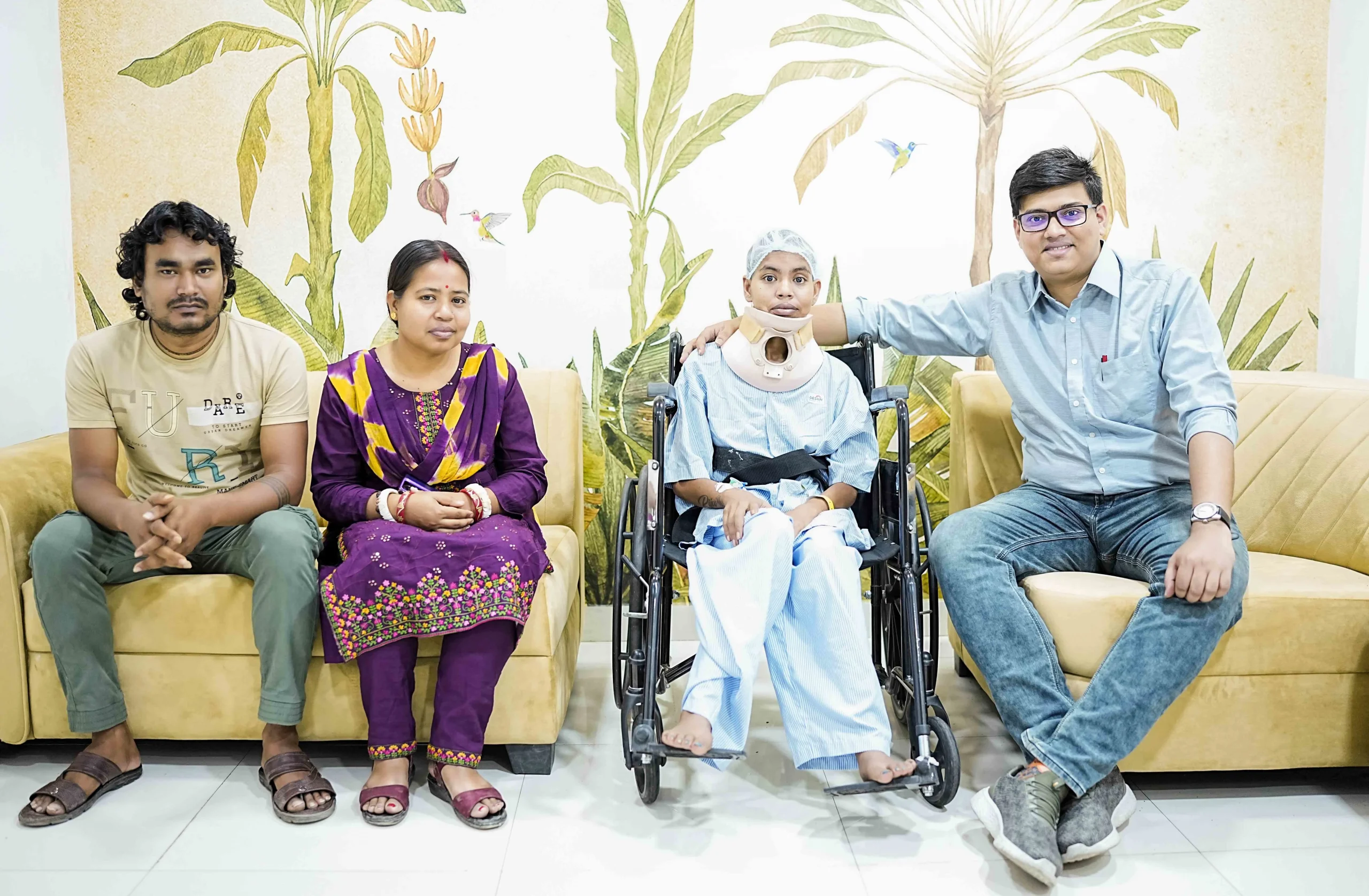Desun Hospital, Siliguri has successfully performed a highly complex spinal surgery, marking a milestone in advanced neurocare for North Bengal. The procedure, Reduction of Atlanto-Axial (C1-C2) Spondyloptosis and Atlanto-Axial Fusion under intraoperative neuromonitoring, was conducted for the first time in the region, offering new hope to patients with severe spinal injuries.
The procedure involves the realignment and stabilization of the C1-C2 joint in the neck, which is a critical and delicate area connecting the skull and spine. In this case, the patient had suffered a severe fracture and dislocation of the C2 vertebra, also known as the axis, which had compressed the spinal cord and caused progressive weakness and paralysis.
Rumki Roy, a 22-year-old woman from Jalpaiguri, suffered a tragic fall from the second floor, resulting in a severe C2 Odontoid fracture in the neck, with C1-C2 Spondyloptosis and rotatory dislocation. The C2 Odontoid fracture is a type of break in the second vertebra of the spine, located in the neck. Over time, her condition worsened, leading to progressive quadriparesis, or weakness in all four limbs, loss of balance, and loss of bladder and bowel control, making her completely bedridden.
Even though she sought treatment at multiple hospitals in the region, she was advised to travel to other parts of India for surgery. When she was admitted to Desun Hospital, Siliguri on March 23, she was wheelchair-bound, with only 20-30% movement in her hands and legs. Upon evaluation, a grossly displaced Type 2 Odontoid fracture was diagnosed, with severe spinal cord compression, necessitating urgent surgical intervention.
A team led by Dr. Mayukh Guha, Consultant Spine Surgeon at Desun Hospital, Siliguri, performed a delicate and high-risk procedure to realign the C1-C2 joint, stabilize it using screws and rods and give space to the severely compressed spinal cord. Given the complexity of the case, intraoperative neuromonitoring technology was used to ensure no damage to the spinal cord during surgery. This advanced technology allows surgeons to monitor the spinal cord’s function in real-time, enabling them to make precise adjustments during the procedure.
Remarkably, within a day of surgery, Rumki regained movement and was able to walk with support. She has shown significant progress, with rapid improvement in her motor functions and also has regained her control of passing urine and stool .
Speaking on this achievement, Dr. Mayukh Guha, stated, “Performing a surgery of the craniovertebral junction is one of the most challenging tasks for a spine surgeon. In this case, restoring spinal alignment while preserving neurological function was critical. The patient and her family kept a lot of faith in me and trusted us with performing this surgery. We are thrilled to see the patient regain her mobility so soon after surgery, reinforcing our commitment to advanced and safe spine care in North Bengal.”
Mr. Arindam Samanta, Associate Director & Unit Head of Desun Hospital, Siliguri, expressed pride in the hospital’s growing expertise. “This milestone surgery reflects Desun Siliguri’s dedication to offering state-of-the-art medical treatment. Our ability to successfully conduct such a high-level spine surgery for the first time in North Bengal is a testament to our commitment to providing world-class healthcare closer to home.”
Priyanka Roy, Rumki’s sister, expressed her gratitude, saying, “We are extremely thankful to Dr. Mayukh Guha and the entire team at Desun Hospital for giving my sister a second chance at life. After falling from a height, Rumki wasn’t able to walk, and we had lost all hope. But thanks to the expertise and care of the team, she is now able to walk again, and we are forever grateful.”
Desun Hospital, Siliguri continues to strengthen its position as a leader in complex spinal interventions, ensuring that patients no longer need to travel long distances for advanced treatments.




